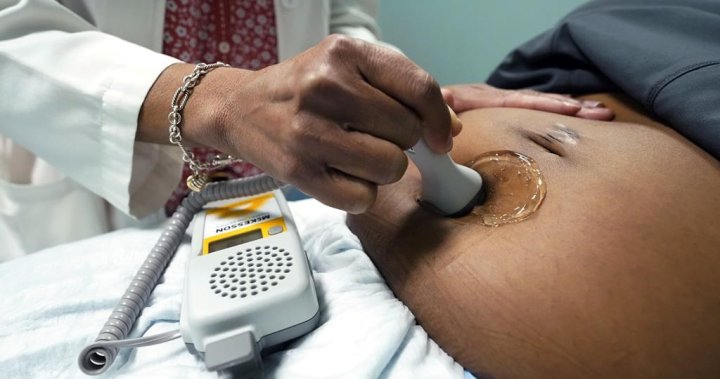
Extreme heat may increase risk of severe health problems during pregnancy: study
Global News
A study published Thursday in the JAMA Network Open found that exposure to extreme heat may increase the risk of severe health problems in pregnant individuals.
Exposure to extreme heat during pregnancy has shown to be associated with a higher risk of severe maternal health problems, according to a new study.
The study published Thursday in the JAMA Network Open found a significant association between long-term heat exposure during the third trimester and severe maternal morbidity (SMM) — defined as severe and unexpected conditions during labour and delivery. The risk of SMM in these circumstances showed an increase of 27 per cent.
“Associations observed in the third trimester indicated that late pregnancy might be a more sensitive window to environmental heat,” the study says.
Risks were still “significantly associated” in short-term exposure as well under “all heatwave definitions”: moderate, high and extreme.
The rate of SMM in 2014 was already three times more than 20 years prior, the study says.
Greater risks were observed among pregnant individuals with a “lower educational attainment,” the study notes, or whose pregnancy started in the cold season between November and April. Age played a role as well, with an increased risk presented among pregnant people under the age of 25 or older than 35.
“Adolescent mothers are more likely to be in unfavourable social or physical conditions and may have limited knowledge or awareness to protect themselves against extreme heat,” the study said. “Pregnancy complications and risk factors can be more common among older mothers, possibly due to the physiological changes from aging, which may exacerbate heat effects.”
403,602 pregnancies were studied from 2008 to 2018 in Southern California. Researchers conducted a retrospective population-based epidemiological cohort study, where preexisting data is used to examine the relationship between an exposure and an outcome.












